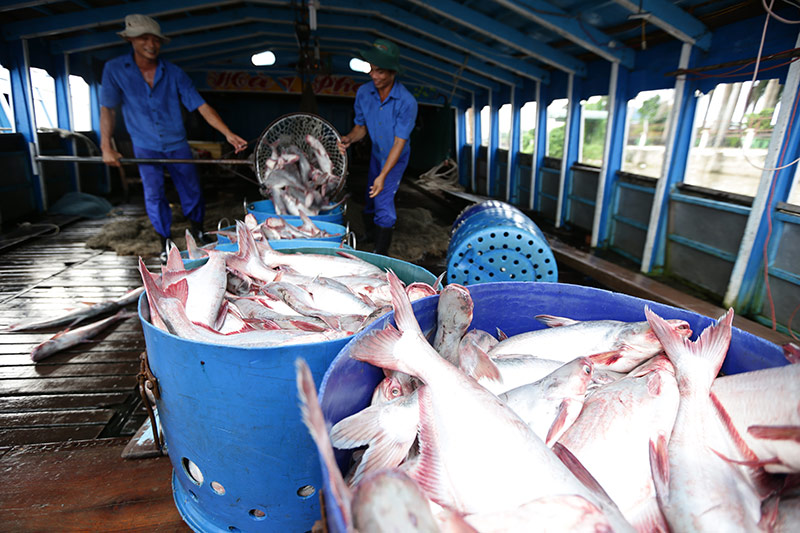In response to the strong negative public exposure surrounding pangasius farming for some time now, the Global Aquaculture Alliance (GAA) ensures that this fish can be produced in a responsible manner and under stringent food safety standards, so it can bought with confidence.
The nonprofit organization clarifies that producers certified under the Best Aquaculture Practices (BAP) are subject to rigorous food safety inspections and environmental production controls. In addition, it notes that these producers invest in their business to meet these requirements and must be respected by their leadership in doing so GAA pointed out that there have been anti-pangasius campaigns, often promoted by competing seafood interests and spread on social media, that can easily misrepresent the realities.
It also emphasizes that the claims made in these campaigns have been challenged by scientific literature studies and publications.
“Pangasius has been the subject of food scares and environmental scares, but on closer inspection the claims lack substance,” the co-author of one of these studies, said Simon Bush, professor of environmental policy at Wageningen University.
“Our analysis shows that the vigorous claims made about pangasius do not match the very limited safety risk and limited environmental impact observed in scientific studies. In reality, pangasius, a relatively new product in Western markets, has found an important niche in retail and foodservice outlets and is perhaps a victim of its own success,” he added.
 Pangasius from Hacaseafood
Pangasius from Hacaseafood
Another scientist, Ghent University Professor Emeritus Patrick Sorgeloos, stressed research of Dutch scientists has showed that the contribution of the pangasius industry to pollution in the Mekong River is negligible.
He also also pointed out, “When pangasius made its entrance in Europe, the local fishing industry was afraid of cheap farmed fish from Asia, as they thought that consumers would buy less fish from local sources.,” which did not happen.
Regarding the claims of negative environmental impacts, GAA’s BAP Coordinator Dan Lee pointed out, “Any fish species, whether in a natural or a farm setting, will interact with its environment. Pangasius is no exception and the interactions arising from production systems in Southeast Asia do have the potential to generate localized negative impacts.”
In this sense, he noted that organizations such as the Aquaculture Stewardship Council (ASC) and BAP have established production and environmental standards for farmed fish to recognize those producers who mitigate against those potential negative impacts.
“The standards specify the controls that need to be applied to contain the risks of biodiversity impacts, wildlife interactions, pollution and the indirect impacts associated with providing marine ingredients for feeds,” Lee highlighted.
Additionally, the standards developed by GAA and ASC set controls on the use of chemicals and antibiotics to prevent any risks to the health of either the environment or the consumer.
To verify compliance with BAP and ASC standards, independent certification bodies conduct annual inspections, with teams of trained auditors that have specialist knowledge of aquaculture and its potential impacts.
Therefore, the organization concluded that given the combined forces of science-based standards and rigorous, independent auditing, it is clear that certified pangasius is a responsible sourcing choice.
Source: From editorial@fis.com, www.fis.com